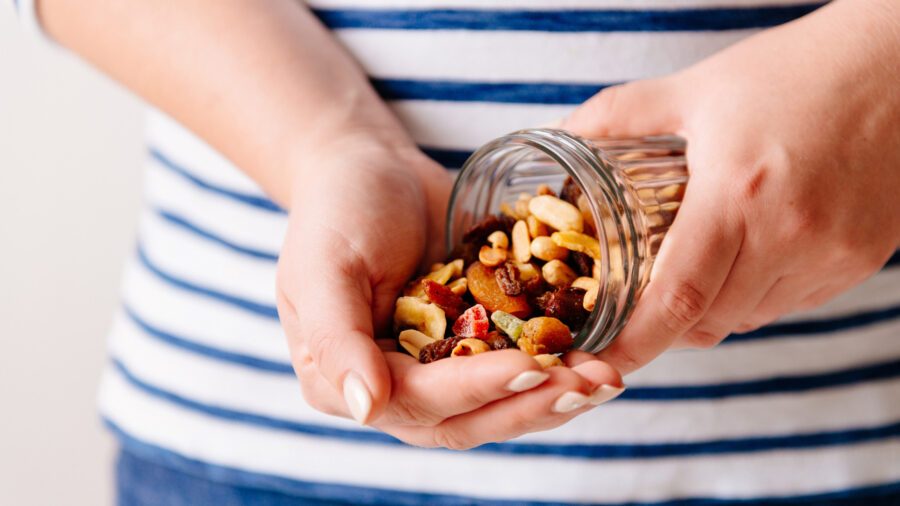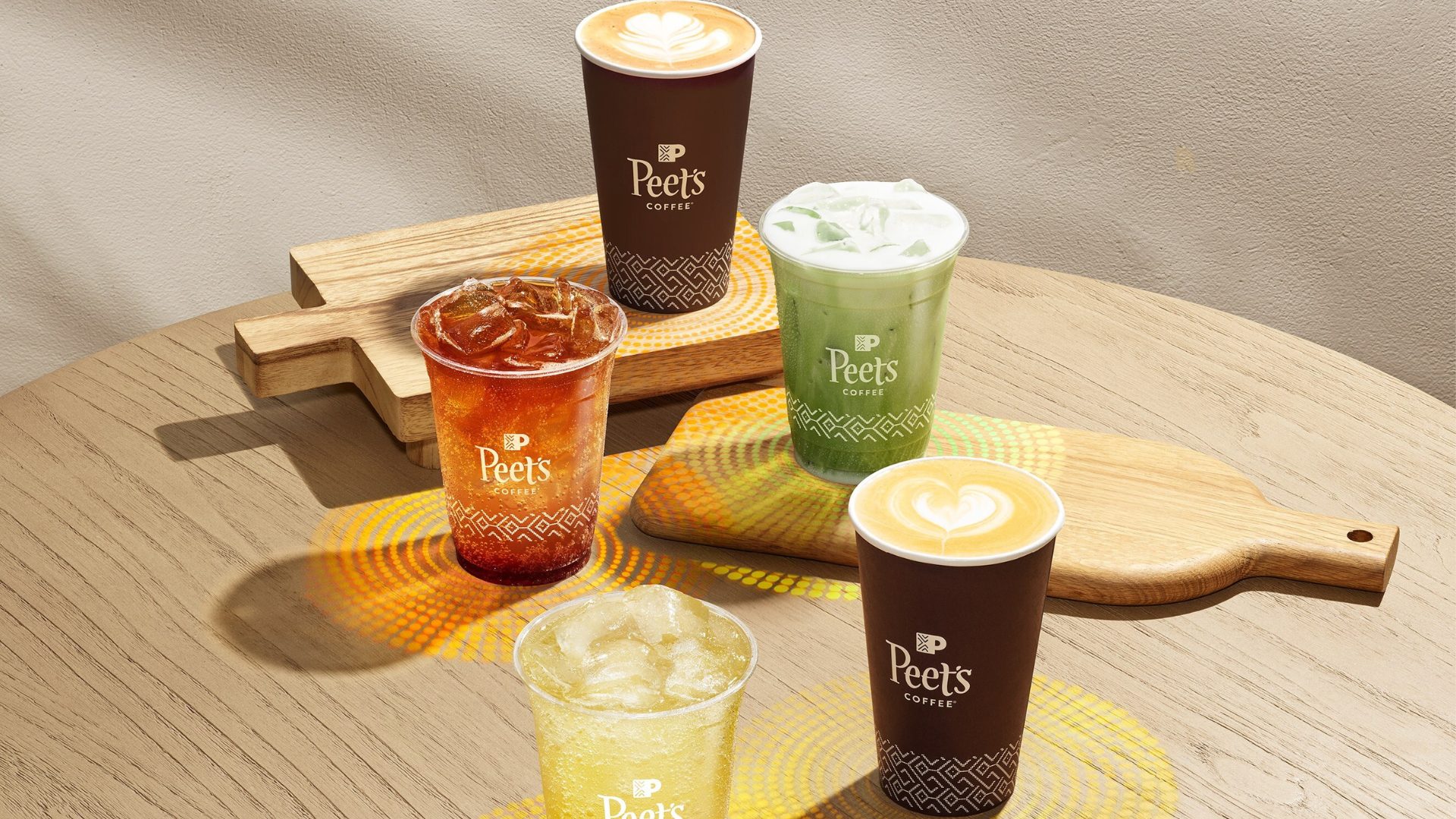Earlier in the pandemic, snacking complemented remote work and supplemented restaurant dining and continues to replace meals with added bonuses.
This year, Grubhub’s infamous lunch promotion was prompted by 69% of New Yorkers surveyed saying they skip lunch when they’re too busy. Shortly after, The Washington Post covered the popularity of snacking for dinner, from the age-old habits of utilizing anything left in the fridge for a meal to the more recent trends of charcuterie and grazing boards.
In 2021, 64% of global consumers reported at least one meal replacement a day (a 5% increase from 2019 in a Mondelez International study), and 45% of Americans reported consuming three or more snacks a day, according to data analytics company IRI.
A Doordash trend report ranked snacks the fifth most ordered grocery item, above frozen foods, meat and fish, from June 2020 to October 2021. In that time, 65% of Doordash customers surveyed partook in late-night snacks or second dinners.
And as snacking sustains popularity, interests and offerings have evolved.
PROTEIN AND POSITIVITY
Food Processing recognizes a rise in protein bars and high-protein snacks aimed at the consumer appetite for replacing meals alongside the appeal of mood-boosting snacks. The source of which ranges from vitamins C and D to CBD.
For example, LivBar’s using superfoods like kale and herbs like maca for energy bars (with compostable packaging). Berg’s using nuts, seeds and oil for fatty acids and prebiotic fiber to promote gut health with its energy bars. Independent snack brands are betting on science-backed claims and human interest stories to sell these benefits.
PRINCIPLES AND PAIRINGS
A recent U.S. trend index found 90% of daily snack consumers care about the companies behind the products, including each business’ treatment of employees (87%), community impact around food access (78%), and attention to sustainability practices (77%), Frito-Lay noted. Meanwhile, 35% responded that innovative flavors are most likely to impact snack selection.
S’mores and spice flavors trended at the annual Sweets and Snacks Expo in Chicago in June, as name brands introduce combinations like Planters’ Sweet & Spicy Dry Roasted Peanuts and Flamin’ Hot Cool Ranch Doritos.
This follows the National Confectioners Association’s 2021 report — Sweet Insights: State of Treating — which identified consumers’ interest in companies’ transparency, flavor variety, health consciousnesses and plant-based options.
Data tech company SPINS calls the latter two trends functional snacking, combining the convenience of quick bites and nutritional benefits like plant-based “gelato with adaptogenic herbs” or “cookie dough with collagen”.
Take Snackmagic, the snack box delivery company curating thousands of snacks for gifting. There are protein bar and functional bar categories, products for productivity and wellness, and shopping filters for every kind of restriction or lifestyle (vegan, dairy-free, gluten-free, Keto and Paleo). Among the options, Moonshot crackers are climate-friendly, Amara smoothie melts are made with plant-based yogurt, and myAir nutrition bars promote calm and stress relief.
“Consumers are increasingly taking environmental action through their purchasing decisions,” Moonshot founder Julia Collins told The Food Institute, referencing NYU Stern’s Center for Sustainable Business: “Products marketed as sustainable grew 2.7 times faster than products not marketed as sustainable in 2021.”
Simple Food Ventures closed $6 million this week to invest in healthy, natural and organic food products, Food Business News reported. Last week, Forbes rounded up new foods from thoughtful brands, including sugar-free fermented foods for probiotics from Small Town Cultures and gelato made with upcycled coconut meat from Sacred Serve, which champions sustainable packaging.
Consumers’ top environmental concern is low-impact packaging, whether recyclable or returnable, and even Hostess grew its revenue 12% YOY in 2021 due in part to a renewed focus on health and sustainability.
“Consumer brands have a unique opportunity to set themselves apart by taking responsibility for their impact on the environment and going further by sourcing regenerative ingredients, measuring their footprint and going carbon neutral,” Collins added.












